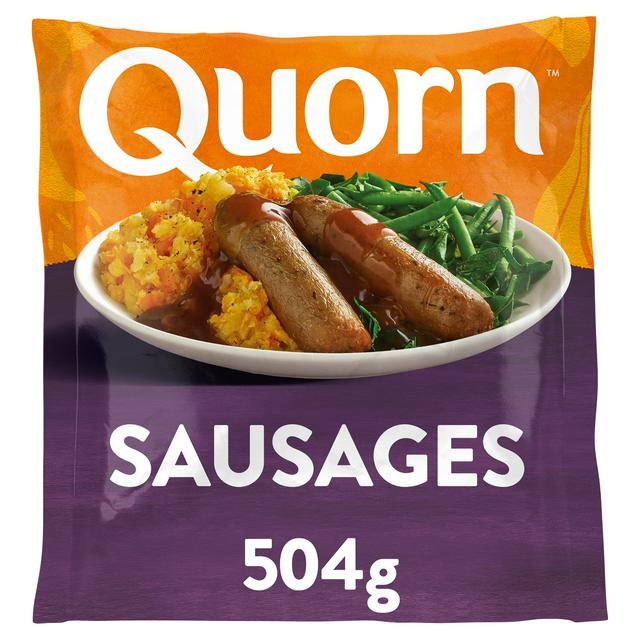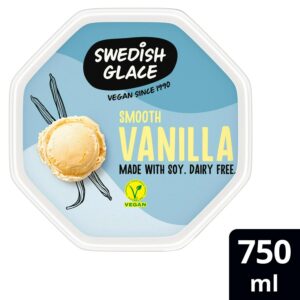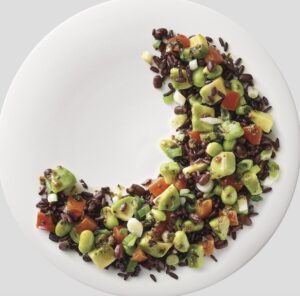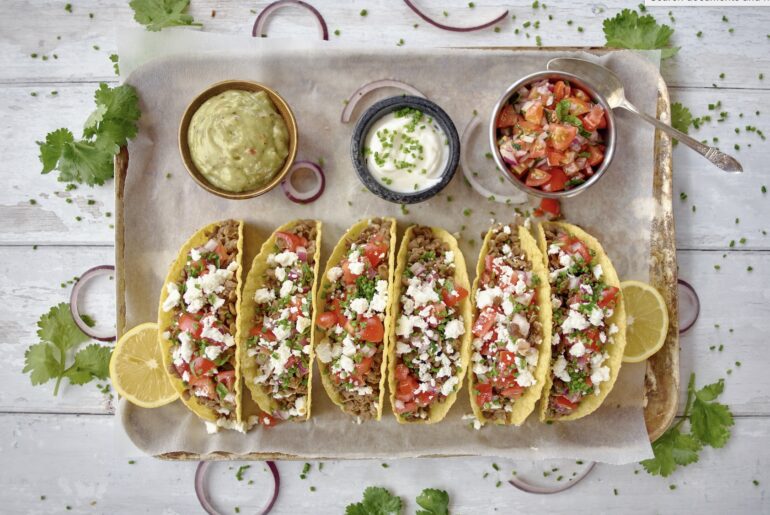The dietary habits of Britons have changed considerably over the last decade, resulting in large numbers of the population reducing animal protein intake. This shift in eating has driven interest in the plant-based sector, increasing its market value to £963.8 million in 2022, according to GFI Europe.
The British retail marketplace is one of the largest in Europe, and the value of plant-based food in the UK grew by 9% between 2020 and 2022. This fell to £523 million in 2023, with Mintel citing the cost of living crisis and concerns about ultra processed ingredients used to manufacture meat substitutes as key drivers of the downturn. However, despite the slide, the plant-based sector remains significant.
“Years ago, if someone ordered a plant-based or meat-free dish it was very likely they were a vegetarian or a vegan,” said Gordon Lauder, managing director of Collingtree, England-based frozen food distributor Central Foods. “That’s changed in recent times, with flexitarianism and meat-reduction becoming much more popular. There’s no doubt that interest in plant-based dining has grown considerably – fueled in general by health and environmental concerns.”

Flexible Approach
Flexitarianism – a lifestyle where individuals eat meat-based foods as well as plant-based products – has increased in popularity, with more people significantly reducing their meat intake. In fact, according to a Smart Protein Project study entitled “Evolving Appetites: An In-depth Look at European Attitudes Towards Plant-based Eating (2023),” 48% of meat consumers in the UK have lowered their meat intake, with 25% of respondents viewing themselves as flexitarian, 7% as vegetarian, 4% as pescatarian and 2% as vegan.
The study found that respondents in the Britain intended to substitute animal-based foods with legumes (57%), legume-based foods (43%), plant-based meat alternatives (39%) and plant-based dairy alternatives (41%).
With the number of vegans increasing to 2.5 million (4.7% of adults) between 2023 and 2024 (Finder research) there is a huge market for plant-based products in the frozen aisles of supermarkets and grocery stores. Some 3.1 million people in Britain identify as vegetarian and 3 million as pescatarian, with a total of 8.6 million following a meat-free diet. This equates to 16% of adults. Meanwhile, 6.4 million plan to adopt a meat-free diet in 2024 and more than half of those in the Generation Z demographic could be meat-free consumers by 2025.
“Frozen plant-based products have been a key contributor both for innovation and in the growth of the sector, driven by an increase in consumer and industry demand,” said Rupert Ashby, chief executive of the British Frozen Food Federation (BFFF). “Major retailers such as Tesco, Sainsbury’s and Waitrose have expanded their frozen plant-based product lines to cater to this rising demand. Looking ahead, the market is expected to continue to grow with forecasts suggesting that the UK plant-based food sector could surpass £1.5 billion in value by 2025. This continued growth is supported by ongoing innovation and consumers shifting towards plant-based diets.”

Plant-based Staples
According to the BFFF, a variety of frozen plant-based products are gaining popularity. Among them are ready meals, vegan pizzas, burgers and other meat substitutes, such as Quorn’s frozen mince and meat-free sausages, which are now readily available in retail outlets nationwide.
“Dairy-free ice creams are becoming more popular as health-conscious consumers and those with allergies and intolerances enjoy a better array of choices,” said Ashby. “These products are widely available in major supermarkets and often featured in dedicated plant-based freezers, making them easily accessible.”

Most ice cream brands now offer vegan options, such as Ben and Jerry’s non-dairy Phish Food. Walls’ Swedish Glace fears Delightful Raspberry, Heavenly Chocolate and Smooth Vanilla tubs, as well as Soft Toffee and Caramel Cone.
“The secret to the foodservice sector having a successful plant-based offering is to include attractive and delicious menu items that will appeal to all customers, not just those with dietary requirements,” said Lauder. “Central Foods has been a long-term champion of providing plant-based and meat-free options to foodservice operators. Our most popular vegan line is the KaterVeg! vegan mince. It’s significantly cheaper than standard beef mince and provides a greater yield – up to 20% more. Versatile and also suitable for gluten-free diners, it’s a great meat swap in many popular dishes such as lasagne, chili or Bolognese.”

The KaterVeg! range uses soya that is grown without the use of controversial herbicide glyphosate, which makes it as good as it gets from both an environmental and a health point of view. The soya is also high in protein, low in fat, low in sugar, a source of fiber, and has salt levels below the PHE 2024 targets.
“One trend in the plant-based sector has been a move to more actual vegetable-based dishes,” pointed out Lauder. “Our savory Menuserve Mediterranean Vegetable tart and KaterVeg! Moroccan Cauli Bites (pictured below) are proving even more popular because of this.”
Plant-based Trends
There have been significant advancements in the plant-based sector, with the introduction of products that appeal to a wide audience, not just vegans and vegetarians.
“Reflecting key trends in the market, new plant-based frozen ingredients like frozen Yuzu Juice have become popular in Japanese cooking sauces and are increasingly used in drinks, desserts, and seafood dishes, highlighting the trend of incorporating exotic flavors into everyday cooking,” said BFFF’s Ashby. “Similarly, in the foodservice industry, chefs are incorporating ingredients that were frozen fresh – tarragon for example – into their dishes to bring vibrancy of flavor while minimizing food waste.”
He added: “There has also been a noticeable rise in gourmet plant-based offerings, catering to both retail and foodservice customers. This trend towards premium, high quality plant-based products is exemplified by the winners of the British Frozen Food Awards’ ‘Best Meat-Free Product’ category, which included sophisticated dishes like a Cook Trading’s Caramelized Shallot, Celeriac and Stilton Tarte Tatin, and Cuisin’ Easy’s Mambonito (seen below), a salad featuring avocado, azuki beans, black rice and tomato.
 “These products are emblematic of the way in which the UK frozen food market is embracing the plant-based trend, offering customers not just health and environmental benefits, but also gourmet taste and culinary sophistication.”
“These products are emblematic of the way in which the UK frozen food market is embracing the plant-based trend, offering customers not just health and environmental benefits, but also gourmet taste and culinary sophistication.”






